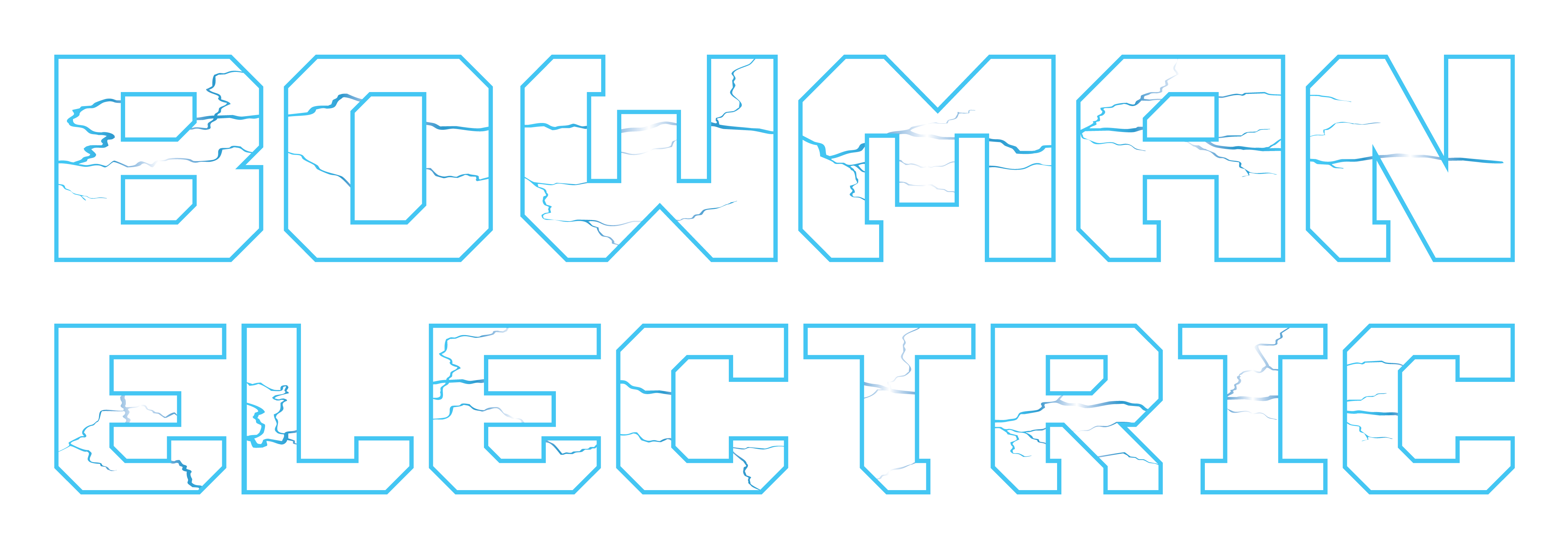How to Prepare Your Home for an Electrical Emergency
- Leanne Bowman
- May 21, 2024
- 3 min read

Electrical emergencies can happen at any time and often come with little warning. Whether it's a power outage, a blown fuse, or something more serious like electrical fires, being prepared can help minimize damage and keep your family safe. Bowman Electrical is committed to ensuring that homeowners are well-equipped to handle these unexpected situations. Here's our comprehensive guide to preparing your home for an electrical emergency.
1. Understand Your Home's Electrical System
Know Your Breaker Box: Familiarize yourself with the circuit breaker or fuse box in your home. This is where you can cut off power to different parts of your house if necessary. Label each switch with the corresponding area of your home it controls, so you can quickly make adjustments during an emergency.
Regular Inspections: Schedule annual inspections with a licensed electrician from Bowman Electrical to identify potential hazards in your electrical system before they lead to emergencies.
2. Install Safety Devices
Surge Protectors: Use surge protectors to safeguard your electronics and appliances from sudden spikes in voltage. This is especially important for protecting expensive items like computers, televisions, and home entertainment systems.
Smoke Detectors: Install smoke detectors on every level of your home and inside each bedroom. Check them monthly to ensure they are working correctly and replace batteries annually.
Carbon Monoxide Detectors: These devices can be life-saving, particularly if you have gas-powered appliances or a garage attached to your home. They can alert you to the presence of this odorless, colorless gas.
3. Prepare an Emergency Kit
Flashlights and Batteries: Keep several flashlights with extra batteries handy in easily accessible places throughout your home.
Portable Chargers: Maintain portable chargers fully charged to keep your mobile devices powered during a power outage.
Emergency Contact List: Have a list of essential contacts, including your electrician, local utility company, and emergency services. Keep this list in a prominent place.
First Aid Kit: Stock a basic first aid kit to deal with any minor injuries that might occur if the lights go out suddenly.
4. Practice Electrical Safety
Unplug Appliances: In the event of a major storm or when advised by authorities, unplug appliances and electronics to prevent damage from power surges when electricity is restored.
Avoid Overloading Outlets: Ensure that you’re not overloading your electrical outlets, which can be a major fire hazard. Use power strips wisely.
Educate Your Family: Make sure all family members know how to safely operate the breaker box and the importance of electrical safety.
5. Create a Home Evacuation Plan
Plan Escape Routes: Determine the safest paths to exit your home quickly and safely. Practice these routes with all family members, especially children, to ensure everyone knows what to do.
Meeting Point: Establish a family meeting point away from the house where everyone can gather after evacuating.
6. Stay Informed
Weather Alerts: Subscribe to local weather alerts to receive updates about severe weather conditions that could lead to power outages.
Utility Updates: Follow your local utility provider on social media or their website for real-time updates on power restoration efforts.
Preparing for an electrical emergency is a crucial step every homeowner should take. By understanding your home's electrical system, installing the right safety devices, and educating your family, you can significantly reduce the risks associated with electrical emergencies. Bowman Electrical is always here to help with expert advice, installation, and maintenance services. Remember, the best time to prepare is now, before an emergency occurs. Stay safe and empowered with Bowman Electrical.




